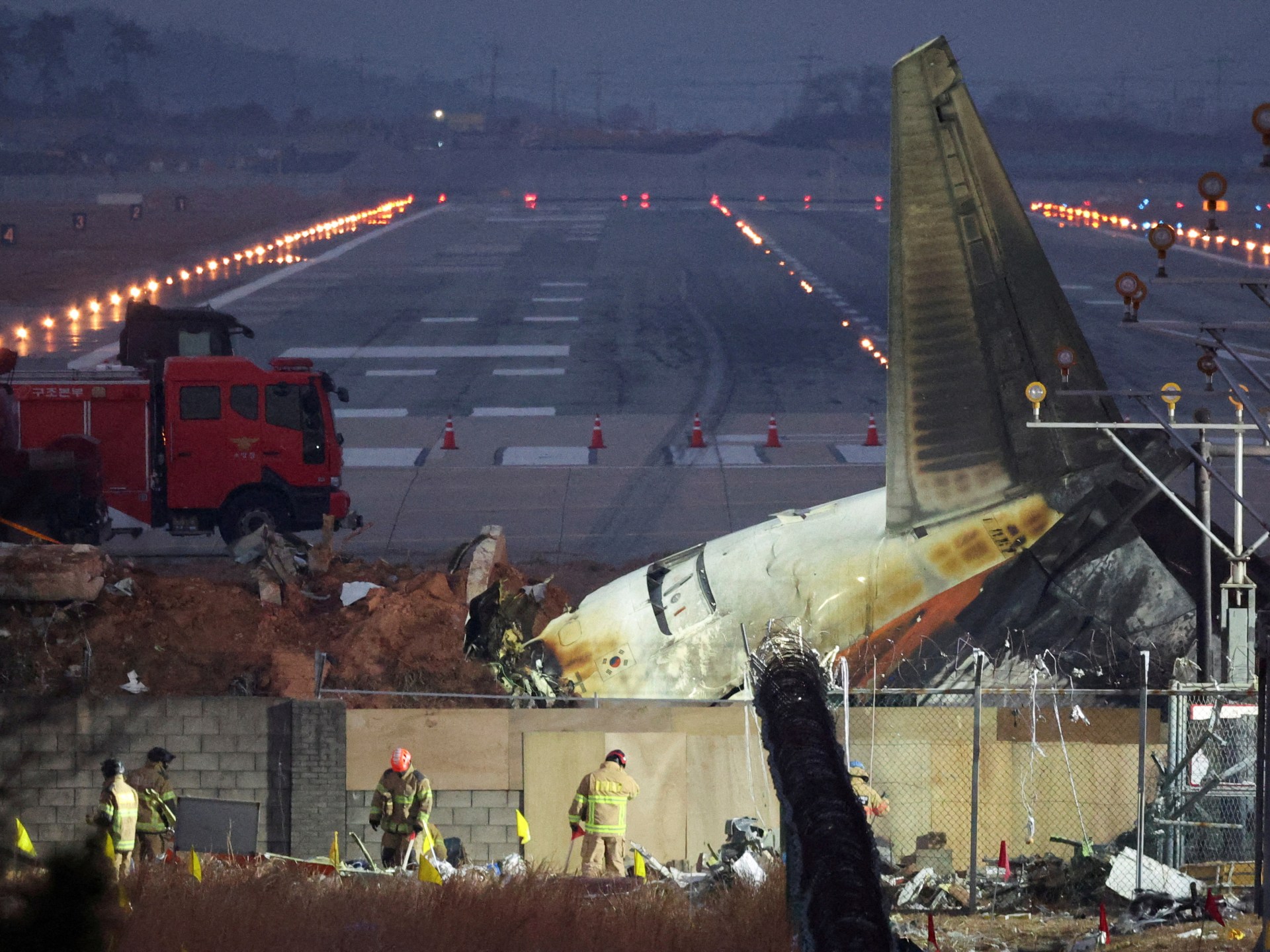The Ministry of Land, Infrastructure, and Transport made the new plans available on Thursday as part of a comprehensive inspection of airport facilities that are particularly attractive to birds.
On December 29, the Jeju Air Boeing 737-800, which was carrying 181 passengers and crew from Thailand to Muan in South Korea’s southwest, belly-landed at Muan airport and descended into a fireball after slamming into a concrete barrier.
The crash left 179 people dead and only two survivors.
The Ministry of Land stated that “almost all airports will have thermal imaging cameras installed,” adding that the rollout is scheduled to begin in the spring of next year.
Mobile sonic devices will also be implemented mainly to deal with “medium- and large-sized birds”.
All airports will have “bird detection radars installed,” according to the ministry, “to enhance early detection of distant birds and enhance aircraft response capabilities.”
The pilot will be notified of the bird’s size and movement path if the radar detects both the bird’s size and movement pattern.
Additionally, the ministry stated that it will “establish legal bases” to relocate facilities that attract birds, such as those that receive food from orchards, and to place new distance restrictions on new facilities.
According to Deputy Minister for Civil Aviation Joo Jong-wan, “the top priority is to implement comprehensive reform measures across aviation safety to stop the recurrence of aircraft accidents.”
Currently, only four airports in Incheon, Gimpo, Gimhae and Jeju Island have thermal imaging cameras for bird detection, according to state news agency Yonhap.
With the plan, the government intends to have at least one camera installed at each of the 15 domestic airports. The procurement process is scheduled to start in March.
Before attempting to land on a second landing, the pilot received warnings about a bird strike at the time of the Jeju Air accident. When the landing gear failed to emerge, the plane crashed on its second attempt.
Investigators from South Korea and the United States are still looking into the crash’s cause, which caused nationwide mourning with memorials set up all over the country.
According to South Korean media reports, a bird strike may have been the cause of the damage found in both engines of the Jeju Air flight.
Four minutes before the crash, the transport ministry claimed the black boxes holding the cockpit voice recorders and flight data stopped recording four minutes before the accident.
Source: Aljazeera

Leave a Reply